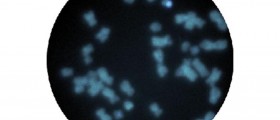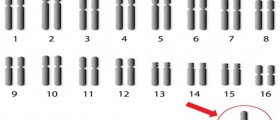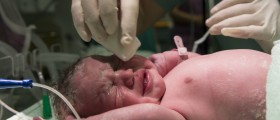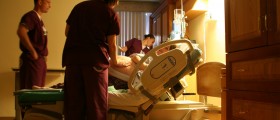Down syndrome is a genetic disorder caused by the presence of additional chromosome 21. People, normally have two of each chromosome in the body and patients suffering from Down syndrome have one extra chromosome i.e. they have three chromosomes 21. There are three types of Down syndrome, trisomy 21, translocation and mosaicism. All of them cause learning and developmental issues but of different intensity.
People suffering from Down syndrome have to face many health issues and these include congenital heart defects, respiratory problems, increased susceptibility to infections, problems and disorders of the digestive tract and are also prone to some malignant tumors such as childhood leukemia.

Down Syndrome and Heart Conditions
It is estimated that around 30-45% of children with Down syndrome are born with heart defects. These include atrioventricular septal defect, ventricular septal defect etc. Some of congenital defects are mild while others may cause lethal outcome if not treated on time.
Down Syndrome and Endocrine Problems
Children suffering from Down syndrome may develop different endocrine disorders. The most common ones are associated with the thyroid gland. This is why hypothyroidism is frequently a cause of many problems in such children. Fortunately, hypothyroidism is easily brought under control with hormone replacement therapy. Additional endocrine problems these children may suffer from include hyperthyroidism, inadequate production of growth hormone (hGH) and several more.
Down Syndrome and Skin Problems
The skin in people suffering from Down syndrome is quite soft when they are young but it tends to become dry and coarse during the process of aging. This can be a trigger for different skin conditions such as atopic dermatitis. Furthermore, such patients are prone to autoimmune illnesses and alopecia areata is one of them. This skin condition affects more people suffering from Down syndrome than healthy individuals.
Down Syndrome and the Digestive System Disorders
Such children may suffer from anatomical and functional disorders. When it comes to anatomical disorders the most common ones include aganglionic megacolon, annular pancreas, duodenal atresia and duodenal stenosis, imperforate anus, tracheo-esophageal fistula and pyloric stenosis. Functional disorders, on the other hand, involve esophageal motility disorders and gastro-esophageal reflux disease as well as different malabsorption disorders.
Down Syndrome and Respiratory Problems
Children with Down syndrome are quite susceptible to infections, respiratory infection in particular. These issues may be associated with different triggers and heart problems, regurgitation of food from the stomach into the lungs and weak immune system are only some of them.
Down Syndrome and Orthopedic Problems
Hypotonia and loose ligaments are two contributing factor to different orthopedic problems in children suffering from Down syndrome. This is why scoliosis, joint dislocation, hip/knee cap instability, weak ankles and problems with feet are conditions that frequently occur.
Down Syndrome and Vision/ Hearing Problems
It is estimated that approximately 70% of all people suffering from Down syndrome have some vision problems. These include farsightedness, nearsightedness, astigmatism, crossed eyes, lazy eye, cataract etc. Fortunately, all of these eye conditions are treatable. And finally, such patients may suffer from some type of hearing loss and additionally develop speech/language problems.

















Your thoughts on this
Loading...